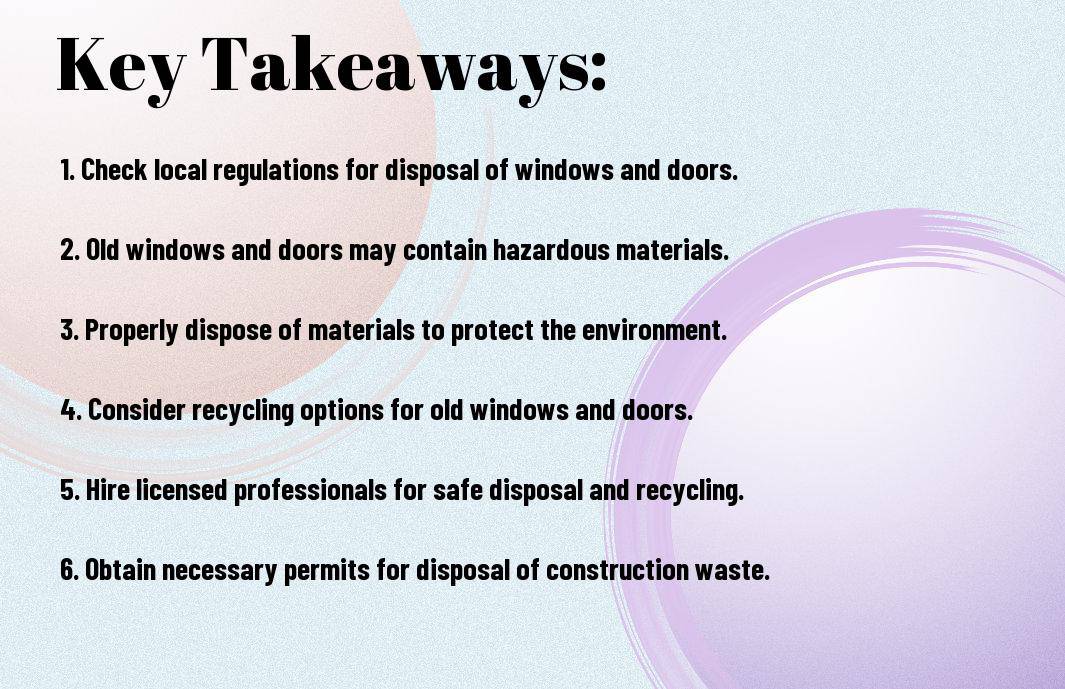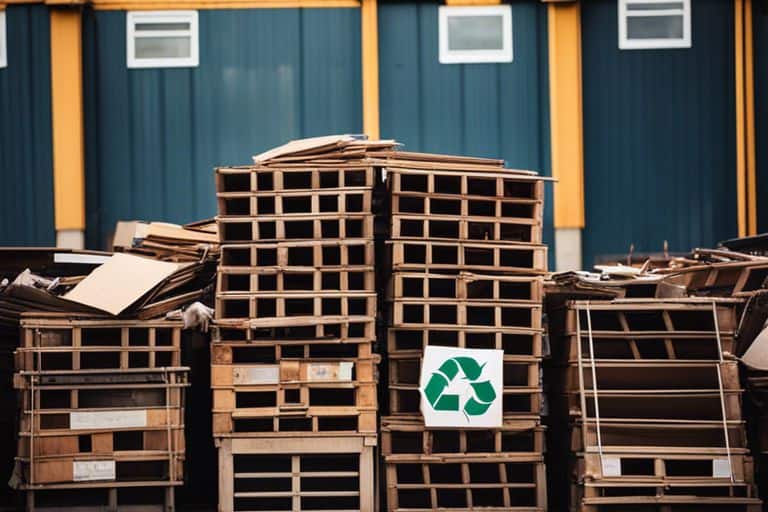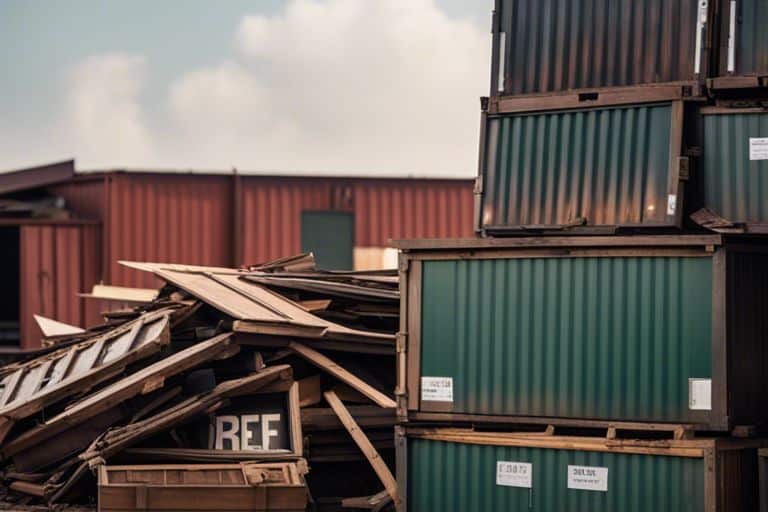Obsolescence is a common occurrence in the lifecycle of windows and doors, often necessitating their disposal. However, it is crucial to be aware of the legal requirements for this process to avoid potential environmental hazards and financial penalties. Disposing of old windows and doors must comply with specific regulations set out by local authorities to ensure responsible and sustainable waste management. Failure to adhere to these requirements can result in legal consequencesessential guidelines for disposing of old windows and doors to help you navigate this crucial process with confidence and compliance.
Key Takeaways:
- Legal requirements: When disposing of old windows and doors, it is important to be aware of the legal requirements set by the local authorities.
- Environmental impact: Proper disposal of old windows and doors is essential to reduce the environmental impact, as these materials can be hazardous if not handled correctly.
- Recycling options: Look into recycling options for old windows and doors, as many materials can be salvaged and reused in new products.
- Professional assistance: Seek professional assistance for the disposal of windows and doors, especially if they contain hazardous materials such as lead paint or asbestos.
- Documentation: Keep documentation of the disposal process, including any certificates or receipts, to ensure compliance with legal requirements.

Environmental Concerns and Regulations
When it comes to disposing of old windows and doors, it’s crucial to consider the environmental impact and adhere to the regulations set in place. The hazardous materials present in these items, as well as the potential repercussions of improper disposal, have led to strict guidelines being implemented to protect the environment and public health.
Hazardous Materials in Windows and Doors
Old windows and doors may contain hazardous materials such as lead-based paint, asbestos, and chemicals used in the manufacturing process. These substances pose a significant risk to both the environment and human health if not handled and disposed of properly. Therefore, it is essential to be aware of the presence of such materials and take necessary precautions to prevent their release into the environment.
In addition to the hazardous materials, windows and doors that are not disposed of correctly can have a detrimental impact on the surrounding ecosystem. The improper disposal of these items can lead to soil and water contamination, as well as harm to wildlife and vegetation. It is evident that the consequences of inadequate disposal practices can be far-reaching and severe.
Improper disposal of old windows and doors can have long-term negative effects on the environment and human health. It is crucial to handle and dispose of these items according to the regulations and guidelines to prevent any potential harm. Awareness of the impact of improper disposal is essential in ensuring that appropriate measures are taken to safeguard the environment and public health.
Federal and State Disposal Guidelines
When it comes to disposing of old windows and doors, it’s important to understand the Federal and State disposal guidelines. These regulations are in place to ensure that the process is carried out safely and responsibly. Familiarising yourself with these guidelines is crucial to avoid potential legal issues and to protect the environment.
Federal-Level Legislation
At the federal level, there are strict regulations in place for the disposal of construction materials, including windows and doors. The Environmental Protection Agency (EPA) enforces guidelines to ensure the safe handling and disposal of these items. It is crucial to follow these regulations to prevent the release of hazardous substances into the environment and to safeguard public health.
In addition to federal legislation, there may be state-specific requirements that must be adhered to when disposing of old windows and doors. Each state has its own set of regulations relating to waste management and recycling. It is essential to research and comply with the specific guidelines in your area to avoid any legal repercussions.
State-Specific Requirements
State-specific requirements for the disposal of old windows and doors can vary significantly. Some states may have designated disposal facilities, while others may require specific methods for recycling or disposal. Failure to comply with these state-specific requirements could result in penalties or fines.
Best Practices for Disposal
When it comes to disposing of old windows and doors, it’s important to follow best practices to ensure you are in compliance with legal requirements and to protect the environment. Proper disposal methods can help to reduce the impact on landfill sites and promote sustainable waste management.
Recycling Old Windows and Doors
Recycling old windows and doors is one of the best practices for disposal. By recycling these materials, you can help to conserve natural resources and reduce the energy required for manufacturing new products. Before disposing of old windows and doors, consider contacting your local recycling facility to inquire about their recycling programme for construction materials. Some facilities may accept wood, glass, and metal components for recycling, so it’s important to explore all available options to minimise waste.
Partnering with Certified Disposal Services
Partnering with certified disposal services is essential for responsible and legal disposal of old windows and doors. Certified disposal services have the expertise and resources to handle hazardous materials and ensure they are disposed of in accordance with regulations. By working with these professionals, you can be confident that your waste is managed safely and responsibly, reducing the risk of harm to the environment and public health.
When choosing a disposal service, look for certifications such as Waste Carriers Licence and Environmental Permit, as these indicate compliance with legal requirements and environmental standards. Additionally, consider seeking out companies with a track record of sustainability and commitment to ethical waste management practices.

Avoiding Legal Pitfalls
When disposing of old windows and doors, it is crucial to ensure that you adhere to all relevant legal requirements. Failure to do so can result in hefty fines and potential legal action. To avoid these legal pitfalls, it is important to familiarise yourself with the proper disposal methods and regulations in your area.
For comprehensive guidance on the best ways to dispose of or recycle old windows, you can refer to 7 Best Ways to Dispose of or Recycle Old Windows, which provides valuable insights into eco-friendly and legal disposal options.
Documentation and Record Keeping
One of the key aspects of compliance with legal requirements for disposing of old windows and doors is maintaining thorough documentation and records of the disposal process. This includes keeping records of where the materials were taken, how they were disposed of, and any associated costs. By keeping meticulous records, you can demonstrate your compliance with the law and protect yourself from potential legal ramifications.
Understanding the Penalties for Non-Compliance
Non-compliance with legal requirements for disposing of old windows and doors can lead to severe penalties, including fines, citations, and even legal action. It is essential to understand the potential consequences of failing to comply with these regulations. Ignoring the legal requirements can result in significant financial and reputational damage to your business. Therefore, it is imperative to stay informed and take the necessary steps to ensure compliance.
For businesses involved in construction or renovation projects, non-compliance with waste disposal regulations can also lead to suspension of operations and loss of contracts. It is crucial to prioritise adherence to legal requirements to avoid these detrimental outcomes.

Legal Requirements for Disposing of Old Windows and Doors
In conclusion, it is essential for individuals and businesses to be aware of the legal requirements for disposing of old windows and doors. Failure to comply with these regulations can result in fines and other legal consequences. It is important to properly handle and dispose of these materials in accordance with local and national laws to protect the environment and public health. This may involve obtaining the necessary permits, using authorised disposal facilities, and adhering to specific guidelines for handling hazardous materials. By being proactive and informed about the legal requirements, we can ensure that the disposal of old windows and doors is done responsibly and in compliance with the law.
FAQ
Q: What are the legal requirements for disposing of old windows and doors?
A: The legal requirements for disposing of old windows and doors vary depending on your location. However, in general, it is important to dispose of old windows and doors in an environmentally responsible manner and in compliance with local waste management regulations.
Q: Can I simply throw away old windows and doors with my regular household waste?
A: No, old windows and doors should not be disposed of with regular household waste. They may contain materials that are harmful to the environment, such as lead or other hazardous substances. It is important to research and follow the specific guidelines for disposal in your area.
Q: What are some common methods for disposing of old windows and doors?
A: Common methods for disposing of old windows and doors include recycling, taking them to a designated waste disposal facility, or hiring a professional waste removal service. It is important to choose a method that ensures proper disposal and minimises environmental impact.
Q: Are there any specific regulations regarding the disposal of windows and doors made from certain materials?
A: Yes, there may be regulations regarding the disposal of windows and doors made from certain materials, such as those containing asbestos or lead-based paint. It is important to research and comply with any specific regulations that apply to the materials in your old windows and doors.
Q: What are the potential consequences of not complying with legal requirements for disposing of old windows and doors?
A: Failing to comply with legal requirements for disposing of old windows and doors can result in fines, legal action, and harm to the environment. It is important to take these requirements seriously and ensure that your old windows and doors are disposed of in a responsible and legal manner.













